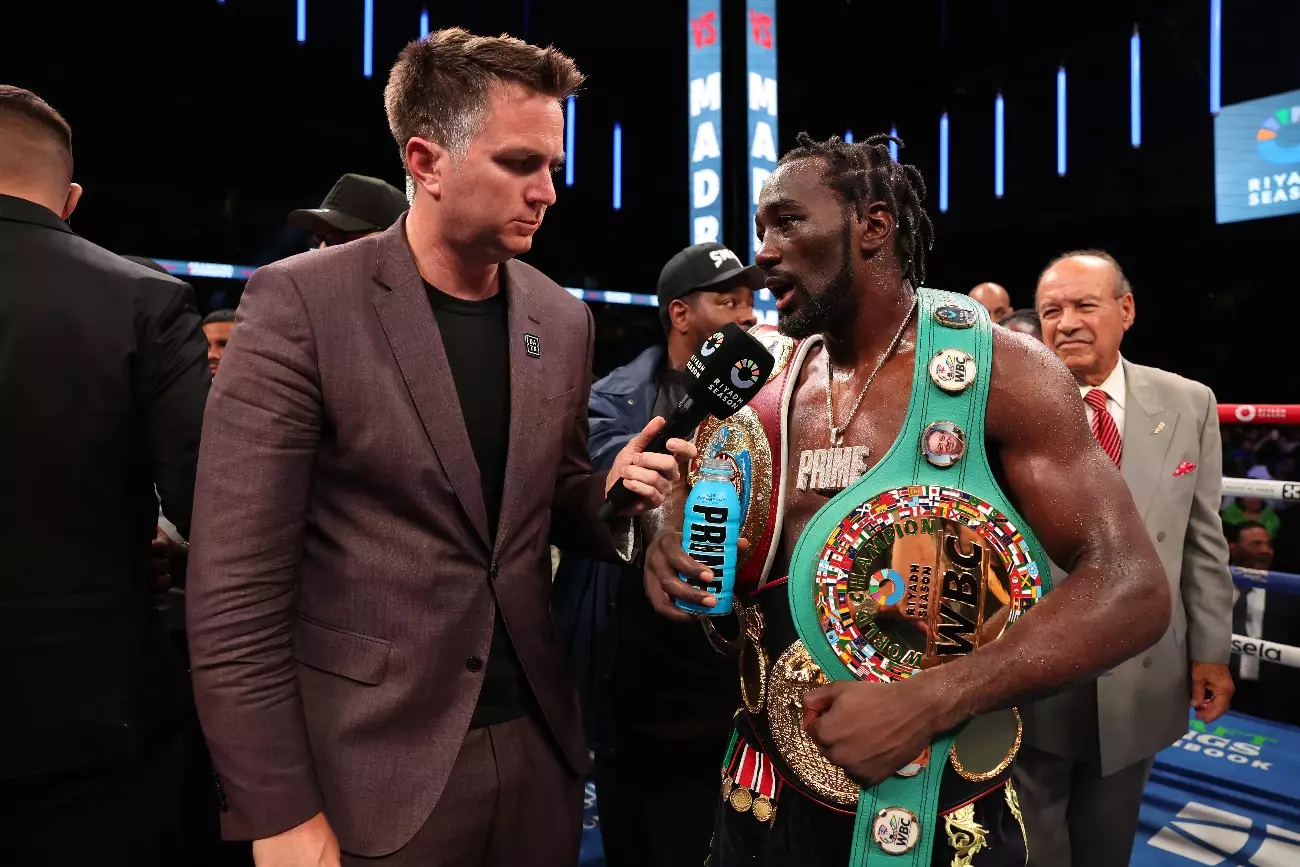In a landscape where athletes are often swayed by financial prospects, Terence Crawford’s recent dismissal of a lucrative two-fight deal against Conor McGregor stands as a testament to his character, integrity, and understanding of sport. Crawford was approached with an enticing offer reportedly worth “hundreds of millions,” but he confidently declined, expressing his disinterest in stepping into the Octagon—a realm vastly different from his boxing domain. This decision not only reflects his self-awareness but also provides critical insights into the world of combat sports, the implications of crossover fights, and the enduring value of legacy.
The allure of crossover bouts—fights where athletes from different disciplines face off—has increasingly captured the public imagination. Initially received with excitement, these matches blend styles and fanbases, creating a spectacle where the unexpected becomes the norm. However, as seen in the past with the Mayweather-McGregor fight in 2017, such events often lack true competitive parity. Many fans left feeling that the notoriety of the fighters overshadowed the quality of the match itself. Crawford’s choice serves as a critique of this growing trend; it prompts us to question the integrity of the combat sports ecosystem and the motivations behind such bouts.
Crawford’s stance is particularly notable because it emphasizes the distinction between financial gain and personal integrity. Though the offer was enticing, he firmly believed that succumbing to the temptation of quick wealth might compromise his reputation as a boxer. As he articulated in his conversation with McGregor, entering the Octagon would place him at a clear disadvantage due to the fundamental differences in rules and fighting styles. For Crawford, the potential risks of injury and humiliation far outweighed the promise of immense financial reward.
Moreover, this scenario presents an essential commentary on the pressures that professional athletes face. In a society that often equates success with financial gain, Crawford’s decision underscores the importance of self-respect and standing firm in one’s principles. The boxing champion’s commitment to his craft—boxing—demonstrates that true competitors prioritize their legacy over monetary rewards.
Crawford’s intention to maintain an untainted legacy should resonate deeply with fans, athletes, and legacy-driven individuals alike. The notion of a pristine record goes beyond numbers; it encompasses the way an athlete is remembered, the respect they command among peers, and the influence they have on future generations. By turning down the offer, Crawford signals the necessity of preserving the sanctity of each sport.
His refusal highlights a critical argument in the fight between spectacle and sport: that not all matches are created equal. While the financial incentives of crossover bouts can be staggering, the potential reputational damage can irrevocably alter a fighter’s legacy. For Crawford, future battles in the ring remain more pertinent than a temporary dalliance in the cage.
Though Crawford’s future remains uncertain—whether he will continue to fight or pursue other ventures—the ripples of his decision will influence discussions surrounding combat sports for some time. The truth is that frequent crossover encounters risk diluting the authenticity and competitive spirit inherent to both boxing and MMA.
Looking ahead, it will be interesting to observe how fans respond to upcoming fights that blur the lines between disciplines. As fans have witnessed multiple poorly matched or gimmicky fights over the years, a critical shift towards supporting genuine contests may emerge. Crawford’s stance evokes a nostalgic longing for the purity of sport, inviting athletes and fans alike to reconsider what makes a fight worth watching.
Terence Crawford’s emphatic “no” to the crossover challenge posed by Conor McGregor serves as both a personal declaration and a broader commentary on the values of finance versus integrity in sports. His choice reinforces the idea that legacy—how one is remembered—is far more valuable than any paycheck, empowering future generations of athletes to prioritize their craft over fleeting financial impulses.

